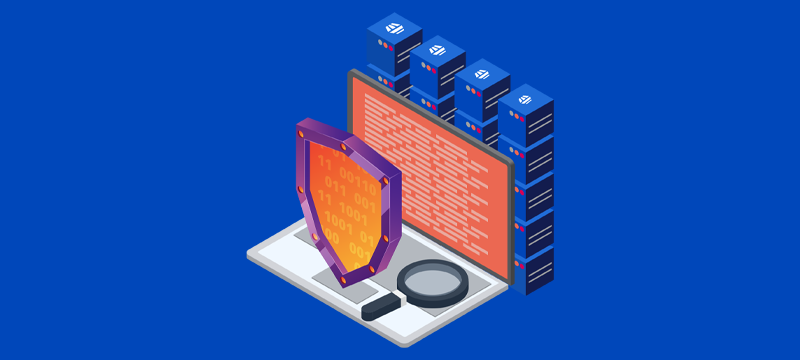![]() With cyber threats continually evolving, businesses with an online presence face an uphill struggle to protect their websites and applications. A must-have tool for any online firm today, application firewalls have become a crucial line of defence that provides robust protection for digital assets. We will explain why application firewalls are indispensable for online businesses.
With cyber threats continually evolving, businesses with an online presence face an uphill struggle to protect their websites and applications. A must-have tool for any online firm today, application firewalls have become a crucial line of defence that provides robust protection for digital assets. We will explain why application firewalls are indispensable for online businesses.
Understanding web application firewalls
Application firewalls not only enhance a company’s security posture but are also a necessity for any business serious about safeguarding its online operations. By integrating a WAF you can defend against a multitude of sophisticated threats that target your web apps, ensuring the continuity and security of your online services.
At its core, an application firewall is both a filter and a shield. It monitors, filters and blocks potentially harmful traffic before it ever reaches your web applications. Unlike traditional firewalls that operate at the network level to block traffic based on IP addresses and ports, WAFs scrutinise the data being transmitted to and from your applications, ensuring that only legitimate traffic passes through. They work by using a series of predefined or dynamically learned security rules to identify and block attacks, such as SQL injection, cross-site scripting (XSS), file inclusion and security misconfigurations. What’s more, these rules are continuously updated to adapt to evolving threats.
A major benefit of application firewalls is their proactive approach to security. Traditional security measures often involve reacting to breaches after they occur. In contrast, application firewalls anticipate and neutralise threats before they can cause harm.
The benefits of application firewalls
- Enhanced security
A WAF operates at the application layer, where much of today’s cyber warfare is waged. By focusing on this layer, it enhances security measures significantly. Traditional network firewalls may serve as the first line of defence, but WAFs scrutinise the traffic that most often leads to breaches, i.e., the web requests and responses that interact with your core business logic. They are designed to understand and protect the intricacies of specific applications, providing a tailored defence against threats specifically built to exploit web applications. - Compliance with regulatory standards
In today’s regulatory-conscious business environment, compliance is not just a matter of following the rules; it’s about demonstrating to your stakeholders that you take security seriously. Application firewalls help businesses meet stringent regulatory requirements, such as those specified by PCI DSS for anyone handling credit card information. Additionally, as they can be configured to provide the required audit trails and reports, they not only protect customer data but also showcase a commitment to regulatory compliance. - Reduction of false positives
False positives, i.e., legitimate requests mistaken for malicious ones, can disrupt user experience and damage trust. Today’s advanced WAFs leverage sophisticated algorithms and learning capabilities to understand the intentions of traffic, thereby minimising these false positives. By doing so, they ensure that security does not come at the cost of user experience. - Customisation
Not all web apps face the same threats, nor do they require the same security protocols. Application firewalls provide the ability to define custom rules and security policies that align with the unique aspects of your application. Whether it’s an e-commerce platform requiring stringent input validation rules to prevent SQL injection attacks, or a content management system that needs special attention to user privileges to ward off cross-site scripting attacks, a WAF can be configured to understand and protect against these specific scenarios. - Downtime prevention
Downtime can be a significant expense for any online business. Application firewalls mitigate this risk by intercepting and neutralising threats that could lead to service outages. By handling threats before they can exploit vulnerabilities, these firewalls prevent the costly consequences of downtime — from lost revenue to diminished user confidence. The ability to maintain operational integrity during an attack is not a luxury; it’s a necessity for maintaining continuity in an online world that expects 24/7 availability. - Protection of sensitive data
With the frequency and sophistication of data breaches increasing, protecting sensitive data is more crucial than ever. WAFs work as a guardian of this data, monitoring and controlling access to it. They ensure that sensitive information, whether it is personal customer details or proprietary business information, is not compromised. This level of data protection is not just about avoiding the hefty fines and fallout from a data breach; it’s about upholding the trust that customers place in your digital services. - Future-proofing your security posture
With the digital landscape evolving at a blistering pace, threats are becoming scarily more sophisticated. Thankfully, application firewalls are not static tools; they evolve through updates and machine learning capabilities to adapt to new threats. By implementing an application firewall, you are future-proofing your security posture against unpredictable threats that can appear on the horizon.
Conclusion
An application firewall is more than just a filter; it’s a dynamic shield that adapts to protect your web applications from ever-evolving threats. It’s an investment in the security and integrity of your online presence and a statement that you value the protection of your data and that of your customers. In a time when there are so many sophisticated cyber threats, an application firewall is not just beneficial; it is indispensable.
Looking for hosting that comes with an application firewall built-in? At eukhost, shared hosting customers get automatic Imunify360 application firewall protection, while cloud, VPS and dedicated server customers can choose between the free ModSecurity application firewall or proprietary Imunify360 security suite. For more information about our full range of hosting solutions and services, visit eukhost.com.



